The rise of plant-based diets has brought with it a demand for convenient and nutritious protein sources. Enter the vegan protein bar: a portable powerhouse designed to fuel your active lifestyle without compromising your ethical or dietary choices. But with a dizzying array of brands and flavors flooding the market, navigating the vegan protein bar aisle can feel like a daunting task.
How do you choose a bar that not only tastes delicious but also delivers on its promise of balanced nutrition? This comprehensive guide is your ultimate resource for all things vegan protein bars. We’ll delve into the essential criteria for selecting the perfect bar, explore the diverse world of plant-based protein sources, and provide in-depth reviews of the leading contenders, highlighting their strengths and weaknesses.
Whether you’re a seasoned vegan, a fitness enthusiast, or simply curious about incorporating more plant-based protein into your diet, this guide will empower you to make informed decisions and discover the ideal vegan protein bar to support your health and wellness goals.
Table of Contents
Why Choose Vegan Protein Bars?
Vegan protein bars offer a convenient and efficient way to supplement your protein intake, especially when time is short or you’re on the go. They can be valuable tools for:
- Meeting Daily Protein Needs: Protein is essential for numerous bodily functions, including muscle growth and repair, tissue maintenance, enzyme production, and hormone regulation. Vegan protein bars can help bridge the gap and ensure you’re getting enough of this vital nutrient, particularly if you’re active or following a plant-based diet.
- Supporting Muscle Recovery: For athletes and fitness enthusiasts, protein is crucial for post-workout recovery. Vegan protein bars provide a readily available source of protein to help repair muscle tissue and reduce soreness.
- Promoting Satiety and Weight Management: Protein is known for its satiating properties. Consuming a vegan protein bar can help you feel fuller for longer, reducing cravings and supporting your weight management goals.
- Convenient Snacking: Vegan protein bars are the perfect grab-and-go snack for busy individuals. They eliminate the need for meal prep and provide a healthier alternative to processed snacks or sugary treats.
- Supplementing a Vegan Diet: While a well-planned vegan diet can provide adequate protein, vegan protein bars offer an extra boost and peace of mind, especially for those new to plant-based eating or those with increased protein needs.
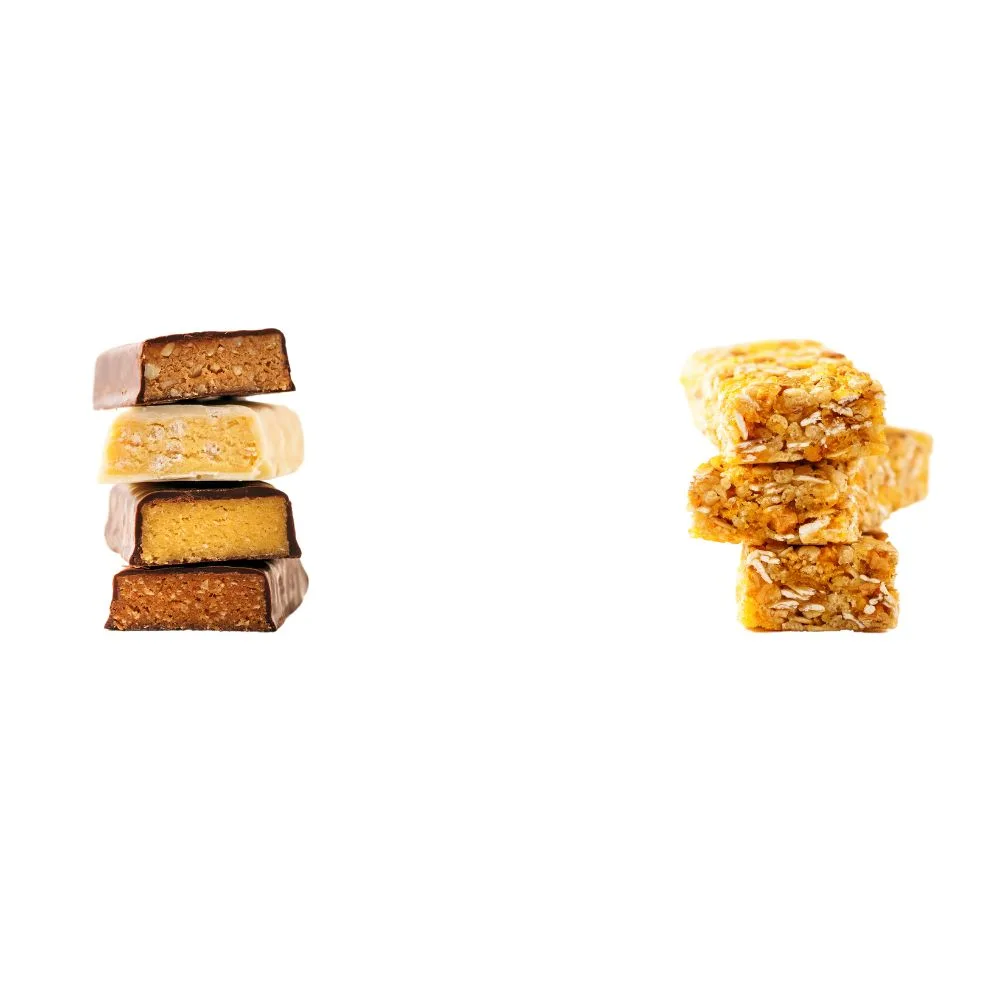
What to Look for in a Vegan Protein Bar:
Not all vegan protein bars are created equal. To make an informed choice, consider these key factors:
- Protein Content and Source: Aim for bars with at least 10-15 grams of protein per serving. Common plant-based protein sources include:
- Soy Protein: A complete protein source, containing all essential amino acids.
- Pea Protein: A highly digestible and hypoallergenic protein.
- Brown Rice Protein: A good source of protein and fiber.
- Pumpkin Seed Protein: Rich in nutrients and antioxidants.
- Chia Seed Protein: Provides protein and omega-3 fatty acids.
- Hemp Seed Protein: A complete protein with a good balance of essential fatty acids.
- Blend of Plant-Based Proteins: Many bars combine different protein sources to create a more complete amino acid profile.
- Sugar Content: Pay close attention to added sugar. Choose bars with minimal added sugar (ideally less than 5 grams per serving) and avoid artificial sweeteners if possible. Natural sweeteners like dates, maple syrup, or coconut sugar are preferable in moderation.
- Fiber Content: Fiber is essential for digestive health and contributes to feelings of fullness. Aim for bars with at least 3-5 grams of fiber per serving.
- Ingredient Quality: Look for bars with whole food ingredients and avoid artificial flavors, colors, and preservatives. A shorter ingredient list is generally a good sign.
- Macronutrient Balance: Consider the overall balance of protein, carbohydrates, and fats. A good vegan protein bar should have a balanced ratio of macronutrients, with a focus on protein and fiber.
- Taste and Texture: Taste is subjective, but it’s important to choose a bar you enjoy. Consider the texture as well – some prefer chewy bars, while others prefer crunchy ones.
- Price: Vegan protein bars can vary significantly in price. Find a bar that fits your budget.
- Allergens: Be mindful of any allergies or sensitivities you may have (e.g., nuts, soy, gluten).
Certainly! I’ll structure the review with detailed pros and cons for each product mentioned, highlighting their unique qualities, benefits, and drawbacks. Here’s a comprehensive review of the vegan protein bars based on the information provided.
Top Vegan Protein Bars: A Comprehensive Review
Finding the perfect vegan protein bar can be a daunting task with so many options on the market. Whether you’re an athlete, a health-conscious individual, or someone who simply needs a convenient snack, there are countless vegan protein bars available, each offering different benefits, flavors, and nutritional profiles.
After testing and researching various brands, we’ve compiled a review of some of the best vegan protein bars, covering everything from flavor and texture to ingredient quality. Below is a breakdown of our top picks along with their pros and cons.
1. Misfits Plant-Powered Protein Bars
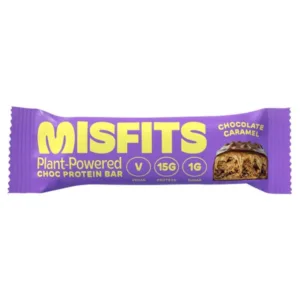
Overview:
Misfits Plant-Powered Protein Bars are a delicious and nutritious vegan option for those who need a quick protein fix. These bars contain a blend of pea protein isolate, soy protein isolate, and soy protein nuggets made with tapioca starch. With flavors like Cookies ‘N Cream, Choc S’mores, and Cookie Butter, they’re designed to cater to a variety of taste preferences.
Bottom Line:
Misfits Plant-Powered Protein Bars are a solid choice for those who value variety in both flavors and textures. While the protein content is decent, the high carb content and occasional flavor disappointment may make them less suitable for some individuals. Overall, they’re a good option if you’re looking for a treat-like protein bar.
2. GoRaw Organic Sprouted Bars
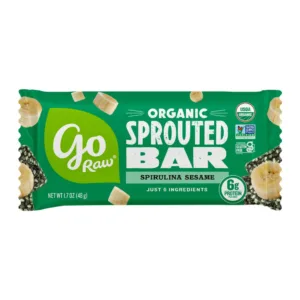
Overview:
GoRaw Organic Sprouted Bars are an excellent choice for those with gluten intolerances, or anyone looking for a more natural, minimally processed option. Made with just five all-natural ingredients, these bars provide a small amount of protein but are packed with healthy fats and fiber.
Bottom Line:
GoRaw Organic Sprouted Bars are an excellent snack for those seeking a clean, natural, and nutrient-dense option. However, the low protein content means they may not suffice as a primary protein source, so they’re best suited for those in need of a light snack or a supplement to a larger meal.
3. Homemade Vegan Protein Bars (No-Bake)
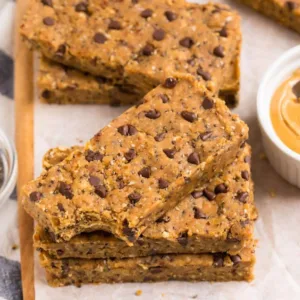
Overview:
If you prefer a DIY approach, homemade vegan protein bars can be an incredibly satisfying and customizable option. These no-bake bars are packed with healthy fats, omega-3s, fiber, and essential vitamins and minerals, and are free from the preservatives and excess sugar found in many store-bought bars.
Bottom Line:
Homemade vegan protein bars are a fantastic option if you enjoy cooking and want to control exactly what goes into your snack. They’re customizable, healthy, and easy to make, but they do require more effort than buying ready-made bars. If you’re okay with that, these homemade bars can be a great addition to your healthy snacking routine.
4. Rise Bar Vegan Protein Bars
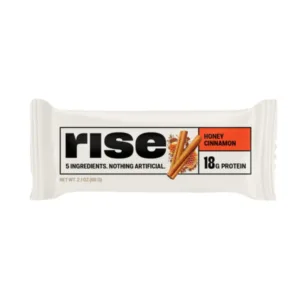
Overview:
Rise Bar Vegan Protein Bars are a staple in the vegan protein bar market. Made with minimal ingredients, Rise Bars use organic brown rice protein and other whole food ingredients like almonds and cashews. These bars are known for their simple, straightforward ingredients that pack a punch in terms of protein.
Bottom Line:
Rise Bar Vegan Protein Bars are perfect for individuals who prioritize protein content and are looking for a post-workout snack that is both filling and nutritious. The high calorie count and cost might be a downside for those looking for a lighter, more affordable option, but they offer excellent value for the protein they deliver.
5. Evo Hemp Protein Bars
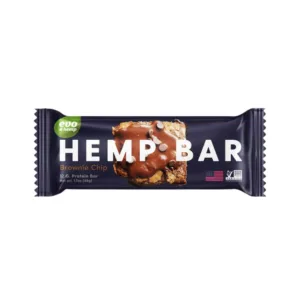
Overview:
Evo Hemp Protein Bars are a great option for those who are looking to incorporate hemp protein into their diet. Hemp is a complete plant protein, meaning it contains all nine essential amino acids. Evo Hemp bars come in various flavors and are a good choice for people who are seeking a more natural, less processed protein source.
Bottom Line:
Evo Hemp Protein Bars are ideal for individuals seeking a natural, nutrient-dense protein source that is rich in omega-3 fatty acids and contains complete protein. The earthy taste and relatively low protein content may not suit everyone, but they are a solid choice for those interested in hemp-based nutrition.
6. ProBar Organic Protein Bars
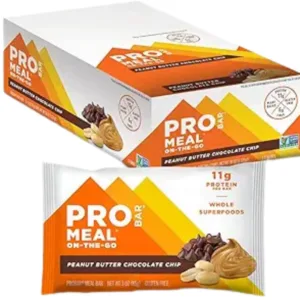
Overview:
ProBar Organic Protein Bars are made with organic, non-GMO ingredients and offer a plant-based protein boost from pea protein, along with other wholesome ingredients like nuts, seeds, and fruits. These bars are marketed as being nutrient-dense and packed with healthy fats and protein.
Bottom Line:
ProBar Organic Protein Bars are a solid option for individuals looking for an organic, flavorful protein bar with moderate protein content. While they can be a bit heavy on the calories and sweetness, they provide a clean snack with a variety of great flavors.
7. Dang Bars
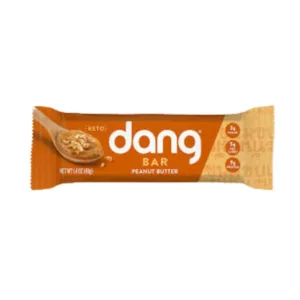
Overview:
Dang Bars are an innovative protein bar option made with coconut, almonds, and other nutrient-dense ingredients. They are available in a range of flavors, including Salted Chocolate, Almond, and Cashew. Dang Bars are rich in healthy fats and provide a moderate amount of plant-based protein.
Bottom Line:
Dang Bars are a great choice for individuals looking for a protein bar that provides healthy fats, moderate protein, and unique flavors. While the dry texture and price may be drawbacks, these bars can be a good snack for those seeking a more balanced option without too much sweetness.
8. Bulletproof Collagen Protein Bars
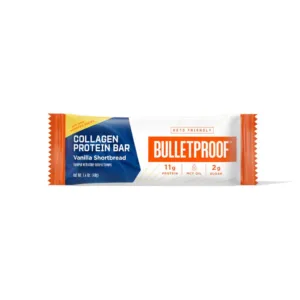
Overview:
Bulletproof Collagen Protein Bars are designed to support skin, joints, and overall health with the addition of collagen protein. These bars are perfect for individuals who want to enjoy the benefits of collagen in a convenient bar format. Available in flavors like Chocolate Mint and Vanilla Shortbread, Bulletproof bars combine collagen with high-quality fats for a nutritious snack.
Bottom Line:
Bulletproof Collagen Protein Bars are a great option for individuals who want the benefits of collagen in their diet. However, due to the price, taste, and the non-vegan nature of collagen, they may not be the best option for everyone.
9. Garden of Life Fit Plant-Based Bar
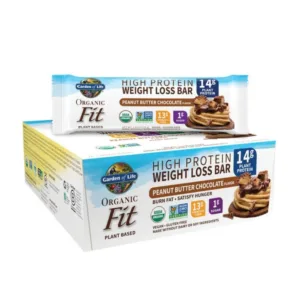
Overview:
The Garden of Life Fit Plant-Based Bar is an excellent choice for those seeking a nutritious, vegan-friendly protein snack. Made with organic plant-based ingredients, including pea protein and sprouted brown rice protein, these bars come in flavors like Chocolate Mint, Chocolate Sea Salt, and Apple Cinnamon.
Bottom Line:
Garden of Life Fit Plant-Based Bars are a great choice for those seeking a high-fiber, organic, and protein-packed snack. However, the higher sugar content and chalky texture may be drawbacks for some individuals. Despite these cons, these bars are a solid option for post-workout recovery.
10. Clif Bar Builders Protein Bars (Vegan)
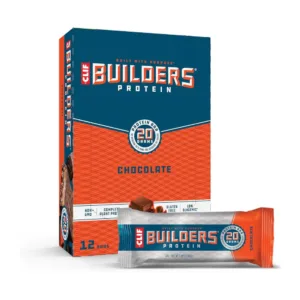
Overview:
Clif Bar Builders Protein Bars are one of the more popular protein bars for athletes and active individuals. The vegan version of this bar offers a good amount of plant-based protein sourced from soy protein isolate and is available in flavors like Chocolate Mint, Crunchy Peanut Butter, and Chocolate.
Bottom Line:
Clif Bar Builders Protein Bars are a solid option for athletes or active individuals who need a high-protein, convenient, and satisfying snack. The high sugar content and soy-based protein may be a turn-off for some, but they remain one of the most accessible and widely-loved protein bars in the market.
11. No Cow Protein Bar
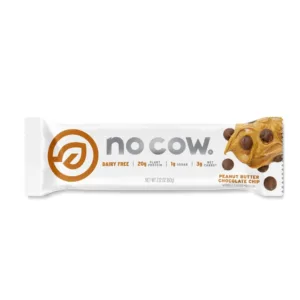
Overview:
No Cow Protein Bars are designed for those who want a vegan, dairy-free, low-sugar option without compromising on taste or protein content. Made with brown rice protein and pea protein, these bars come in a variety of unique flavors, including Chocolate Fudge Brownie, Lemon Meringue, and Peanut Butter Chocolate Chip.
Bottom Line:
No Cow Protein Bars are an excellent choice for those seeking a low-sugar, high-protein snack that is vegan and dairy-free. Despite the higher price and potential sweetness of some flavors, these bars are a top pick for individuals focused on muscle recovery and maintaining a balanced diet.
12. LÄRABAR Protein Bars (Vegan)
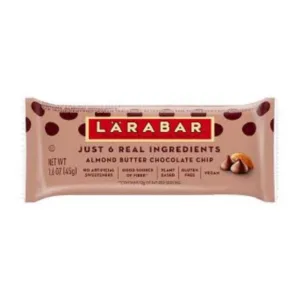
Overview:
LÄRABAR has been a favorite in the energy bar space for years, and their vegan protein bars offer a delicious and simple way to fuel up. Made with whole ingredients like dates, nuts, and seeds, these bars offer 10 grams of plant-based protein in flavors like Chocolate Coconut, Chocolate Chip, and Apple Pie.
Bottom Line:
LÄRABAR Protein Bars are a great option for those who enjoy simple, whole food snacks. They may not be the best choice for those needing higher protein or lower sugar, but they’re a tasty and convenient option for anyone looking for a balanced, clean snack.
13. Aloha Organic Protein Bar
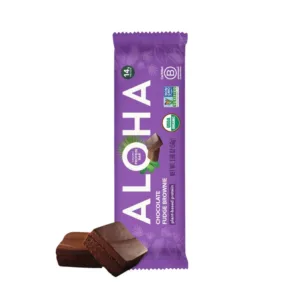
Overview:
Aloha Organic Protein Bars are a popular choice among vegans who prioritize organic ingredients and a clean nutritional profile. These bars are made with pea protein and are available in delicious flavors like Chocolate Mint, Peanut Butter Chocolate, and Cocoa Mint.
Bottom Line:
Aloha Organic Protein Bars are a great option for anyone looking for an organic, vegan protein bar with a balanced macronutrient profile. The price and flavor may not be for everyone, but they’re a solid option for those who prefer a clean, natural snack.
Conclusion
This extended list offers a variety of vegan protein bars that cater to different preferences and nutritional needs. From the high-protein, low-sugar options of No Cow and Clif Builders to the organic, clean snacks of Aloha and LÄRABAR, there’s a bar for every lifestyle. Whether you’re looking for post-workout recovery, a meal replacement, or a convenient snack, these bars provide numerous choices to support your vegan and health-conscious lifestyle.
FAQs About Vegan Protein Bars
What are vegan protein bars made of?
Vegan protein bars are made with plant-based ingredients instead of animal-derived proteins like whey. Common protein sources in these bars include peas, brown rice, hemp, soy, and chia seeds. The bars are typically sweetened with natural sweeteners like dates, agave, or maple syrup, and often include additional ingredients like oats, nuts, and seeds for texture and extra nutrition.
Are vegan protein bars healthier than regular protein bars?
Vegan protein bars can be considered healthier in some aspects, as they avoid animal-based products, which can be a good option for people with lactose intolerance, allergies, or ethical concerns. They are also often free from artificial additives and preservatives. However, like all snacks, it’s important to check the ingredient list and macronutrient profile, as some vegan protein bars can be high in sugar, fats, or calories.
Can vegan protein bars replace meals?
While vegan protein bars can serve as a convenient snack, some of them may not provide the complete balance of nutrients needed for a full meal. For those with higher energy needs or during active days, they can work as a meal replacement, but it’s always best to pair them with a balanced diet rich in vegetables, fruits, and other whole foods.
How much protein do vegan protein bars contain?
Vegan protein bars typically contain anywhere between 10 to 25 grams of protein per serving. Bars with higher protein content are generally better suited for post-workout recovery or muscle-building purposes. However, it’s important to compare bars and choose one that matches your specific nutritional needs.
Are vegan protein bars gluten-free?
Some vegan protein bars are gluten-free, but not all of them. If you have a gluten intolerance or celiac disease, it’s essential to check the label for any gluten-containing ingredients like wheat, barley, or rye. Many vegan protein bar brands offer certified gluten-free options.
What’s the best time to eat a vegan protein bar?
The best time to eat a vegan protein bar depends on your individual needs and lifestyle. Some people prefer to eat them after a workout to help with muscle recovery, while others might use them as a mid-morning or afternoon snack to keep hunger at bay. They can also be eaten as a quick breakfast or meal replacement if needed.
Can vegan protein bars help with weight loss?
Vegan protein bars can support weight loss efforts, especially if they are low in sugar and high in fiber, as protein and fiber help to keep you feeling fuller for longer. They can also provide a healthy source of energy when used as part of a balanced diet. However, weight loss ultimately depends on your overall diet and lifestyle, not just the protein bars you consume.
Are vegan protein bars suitable for people with allergies?
Many vegan protein bars are free from common allergens like dairy, eggs, and gluten. However, some bars contain nuts, soy, or other allergens, so it’s important to check the ingredient list if you have specific allergies. Several brands also offer nut-free, soy-free, or gluten-free options, which cater to people with more restrictive diets.
How do vegan protein bars compare to traditional protein bars?
Vegan protein bars typically have a different protein source compared to traditional protein bars, which usually rely on whey or casein protein (dairy-based). Vegan bars are also more inclusive for individuals following plant-based diets or with dairy sensitivities. However, they may have a different taste or texture compared to whey protein bars. Some people find them denser or more fibrous, while others enjoy the natural flavors.
Can I eat a vegan protein bar if I’m not vegan?
Absolutely! Vegan protein bars can be a healthy snack for anyone, regardless of their dietary preferences. Whether you are vegetarian, omnivorous, or just looking for a plant-based alternative, vegan protein bars are packed with nutrients and are a great choice for anyone seeking a healthy snack or post-workout fuel.
How do I store vegan protein bars?
Vegan protein bars should be stored in a cool, dry place, away from direct sunlight. Many bars are individually wrapped, so they’re easy to take on the go. If you have a large batch, you can store them in an airtight container or a resealable bag. Some bars may need to be refrigerated to maintain freshness, especially if they’re homemade or contain perishable ingredients.
Can I make my own vegan protein bars at home?
Yes, making your own vegan protein bars at home is simple and can be a fun, cost-effective option. Many homemade vegan protein bars require basic ingredients like protein powder, oats, nuts, seeds, and natural sweeteners. There are various recipes online that allow you to customize your bars according to your taste preferences and nutritional needs.
Are vegan protein bars good for muscle building?
Yes, vegan protein bars can be a great addition to a muscle-building diet. Many vegan protein bars contain 15-25 grams of plant-based protein, which can help with muscle repair and growth after exercise. For optimal results, look for bars with a higher protein-to-carb ratio and pair them with other whole foods that support muscle building, like leafy greens, legumes, and healthy fats.
What makes vegan protein bars different from other energy bars?
Vegan protein bars are designed specifically to provide a higher amount of protein, often from plant-based sources like pea, rice, or hemp protein. In contrast, energy bars may focus more on providing quick energy, often through carbohydrates like sugars or grains, and are generally lower in protein. Vegan protein bars are also free from animal-based ingredients, making them suitable for those following a plant-based diet.
How do I choose the best vegan protein bar for me?
To choose the best vegan protein bar, consider your dietary preferences, protein needs, and any specific health goals (like weight management or muscle gain). Look for bars with a good balance of protein, fiber, and healthy fats, and be mindful of the sugar content. Also, consider taste, texture, and ingredient transparency to find a product that fits your lifestyle. Trying different brands and flavors will help you determine what works best for you.

Leave a Reply